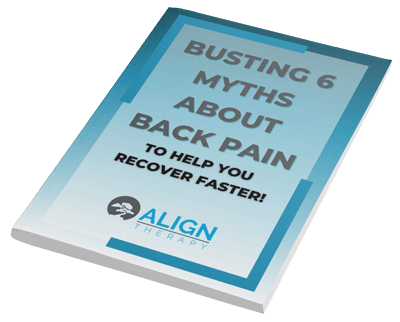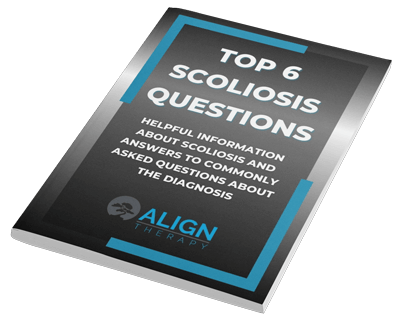Understanding Neuropathy: Causes, Symptoms, and Natural Relief Options
If you’ve ever felt a tingling, burning, or numb sensation in your hands or feet, you may have been experiencing signs of peripheral neuropathy—a condition that affects millions of people across the U.S. Neuropathy can interfere with your ability to walk, sleep, or perform everyday activities, often robbing you of comfort and mobility.
While some believe it’s something you just have to live with, the good news is that there are natural ways to relieve nerve pain, improve function, and get back to living a full life—without relying solely on medications or invasive procedures.
Let’s dive into what neuropathy really is, what causes it, and what you can do to take control of it.
What Is Neuropathy?
Neuropathy, also known as peripheral neuropathy, is a condition that occurs when nerves outside the brain and spinal cord are damaged. These nerves send signals between the central nervous system and the rest of the body.
When damaged, they can misfire or stop functioning correctly, leading to a range of uncomfortable symptoms.
Common Symptoms of Neuropathy
Symptoms can vary depending on which nerves are affected, but common complaints include:
- Numbness or reduced ability to feel pain or temperature changes
- Tingling or “pins and needles” sensations
- Burning or sharp, stabbing pain
- Muscle weakness or cramping
- Difficulty walking or maintaining balance
- Increased sensitivity to touch
These symptoms usually begin in the toes and fingers and can spread upward.
What Causes Neuropathy?
There isn’t just one cause of neuropathy. In fact, there are over 100 types of peripheral neuropathy. However, some of the most common causes include:
- Diabetes – The leading cause of neuropathy in the U.S. High blood sugar damages nerves over time.
- Injury or trauma – Car accidents, falls, or repetitive stress can damage nerves.
- Chemotherapy – Many cancer treatments cause nerve damage as a side effect.
- Infections – Shingles, Lyme disease, and other infections can trigger neuropathy.
- Autoimmune diseases – Conditions like lupus or rheumatoid arthritis can inflame nerves.
- Vitamin deficiencies – Particularly vitamin B12, which is essential for nerve health.
- Alcohol abuse – Chronic alcohol use can lead to nerve damage over time.
The Problem with “Wait and See”
One of the biggest mistakes people make with neuropathy is ignoring the early signs. It’s easy to shrug off tingling or numbness as something temporary—but over time, nerve damage can become permanent if not addressed.
The earlier you seek help, the more options you have for slowing progression and reversing symptoms.
Why Medication Isn’t Always the Best Answer
Many people are prescribed medications like gabapentin or Lyrica to help manage neuropathic pain. While these can be effective short-term, they don’t treat the root cause. And for many patients, the side effects—including dizziness, fatigue, and brain fog—can be just as disruptive as the symptoms they’re trying to manage.
That’s why a growing number of individuals are turning to natural and non-invasive approaches.
3 Natural Ways to Manage Neuropathy
Let’s explore some proven, drug-free strategies that can reduce symptoms and improve your quality of life.
1. Movement and Exercise
Regular movement is critical to keeping your nerves healthy. Exercise increases blood flow to the nerves, which helps supply oxygen and nutrients that are vital for repair.
Try these activities:
- Gentle walking or biking to improve circulation
- Balance and stability exercises to prevent falls
- Stretching and yoga to relieve tightness and pain
- Resistance training to maintain muscle strength
Even 15–30 minutes of movement daily can make a major difference over time.
2. Targeted Physical Therapy
Working with a specialist who understands nerve pain can help you develop a personalized plan that:
- Corrects movement imbalances
- Reduces nerve tension
- Relieves pressure points that contribute to symptoms
- Improves posture and joint alignment
Physical therapy also teaches pain-management techniques and provides hands-on treatments like massage, joint mobilization, and neuromuscular re-education.
3. Nutrition and Supplementation
Your nerves need specific nutrients to function well. A poor diet or nutrient deficiency can worsen symptoms or slow recovery.
Focus on:
- B vitamins (especially B1, B6, and B12)
- Omega-3 fatty acids (found in fish, flaxseed, and walnuts)
- Magnesium and zinc, which help regulate nerve signals
- Antioxidant-rich foods like berries, leafy greens, and turmeric
Some patients also benefit from guided supplementation, especially if lab testing reveals deficiencies.
Additional Supportive Therapies
Several therapies show promise in helping to manage neuropathy symptoms naturally:
- Laser Therapy – Can promote healing and reduce inflammation in affected nerves.
- Dry Needling – Targets muscle tightness and nerve irritation.
- Manual Therapy – Breaks up scar tissue and adhesions around nerves.
- Mind-Body Techniques – Practices like meditation, breathwork, and stress management can reduce pain perception and calm overactive nerve signals.
What Happens If You Ignore It?
Left untreated, neuropathy can:
- Worsen over time
- Lead to permanent nerve damage
- Affect your mobility and independence
- Make walking or even standing painful
- Increase your risk of falls and injuries
- Lead to sleep disturbances and mood changes
Taking action—even small steps—can slow or even reverse the progression.
Is It Too Late?
Absolutely not. Even if you’ve been dealing with symptoms for months or years, there are still ways to improve your comfort, movement, and quality of life. The body has an amazing capacity to adapt and heal—especially when you give it the right tools and support.
Final Thoughts: You’re Not Alone
Millions of people are silently living with neuropathy, unsure of what to do or who to turn to. The truth is, there is help, there are options, and there is hope.
You don’t need to suffer in silence. You don’t need to accept pain as your “new normal.” There are real strategies that work—and they don’t always require pills or surgery.
At Align Therapy, we recently hosted a free community workshop focused entirely on this topic, helping local residents understand their nerve pain and what they can do about it. The response was incredible—and just shows how many people are looking for answers and a more natural approach to healing.
If you’re curious about what steps you can take next, we’d love to help guide you in the right direction.



